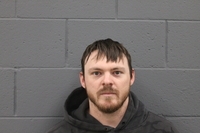Oklahoma Bill Seeks to Regulate Storm Trackers, Raise Concerns Over Ham Radio Operators
Oklahoma Bill Seeks to Regulate Storm Trackers, Raise Concerns Over Ham Radio Operators and Independent Spotters
By Miami News-Digest
OKLAHOMA CITY – A newly introduced bill in the Oklahoma Senate could change how severe weather tracking operates in the state, requiring storm chasers to obtain a state-issued license before being granted certain tracking privileges. However, the proposal has sparked concerns about whether independent storm chasers and amateur (ham) radio operators—long-time contributors to severe weather response—would be excluded from critical emergency roles.
What Is Senate Bill 158?
Senate Bill 158 (SB 158), introduced by Sen. Mark Mann, would establish the Oklahoma Emergency Weather Response and Tracking Regulatory Act of 2025. The bill aims to standardize severe weather tracking by creating a licensing system under Service Oklahoma, the state agency responsible for licensing.
If passed, the bill would require storm chasers to:
- Pass a criminal background check.
- Provide proof of valid insurance for their tracking vehicles.
- Display their license number and their media outlet’s FCC license number on both sides of their vehicle.
Special Privileges for Licensed Trackers
During severe weather events, such as tornado or severe thunderstorm watches and warnings, licensed storm chasers would have the following privileges:
- Access to certain closed roads during storms.
- Permission to activate official storm-tracking visual signals.
Who Qualifies as a “Qualified Media Outlet”?
The bill defines a "qualified media outlet" as one holding an FCC broadcast license or affiliated with an accredited institution of higher education for meteorological research.
This definition may exclude independent storm chasers and freelance meteorologists who operate outside of major TV stations or universities.
Impact on Ham Radio Operators and SKYWARN
Ham radio operators play a critical role in severe weather response through networks like SKYWARN, relaying real-time observations to the National Weather Service (NWS). However, SB 158 does not explicitly mention ham radio operators.
Although ham operators hold FCC licenses, these are for non-commercial emergency communications, not broadcasting. If left unaddressed, the bill could restrict storm spotters from accessing storm-affected areas, potentially impacting emergency response.
Storm Chasing Regulations: Necessary or Overreaching?
Efforts to regulate storm chasing have grown in recent years due to reckless behavior by some inexperienced chasers. However, critics argue that SB 158 may unfairly exclude experienced independent storm chasers and emergency radio operators.
“I’ve been chasing storms for over a decade, providing real-time video and damage assessments to local authorities,” said an independent storm chaser based in the Midwest. “If this bill forces me to work for a big TV station just to continue my work, that’s not fair.”
What Happens Next?
As of January 31, 2025, SB 158 remains under consideration in the Oklahoma Senate. The final outcome may depend on whether lawmakers amend it to include exceptions for independent chasers, ham radio operators, and volunteer emergency responders.
For more updates on SB 158, visit the Oklahoma Legislature’s website.
Follow Us for More Updates from The Miami News-Digest
© 2025 Miami News-Digest. All Rights Reserved.




This bill is bullcrap!
ReplyDelete